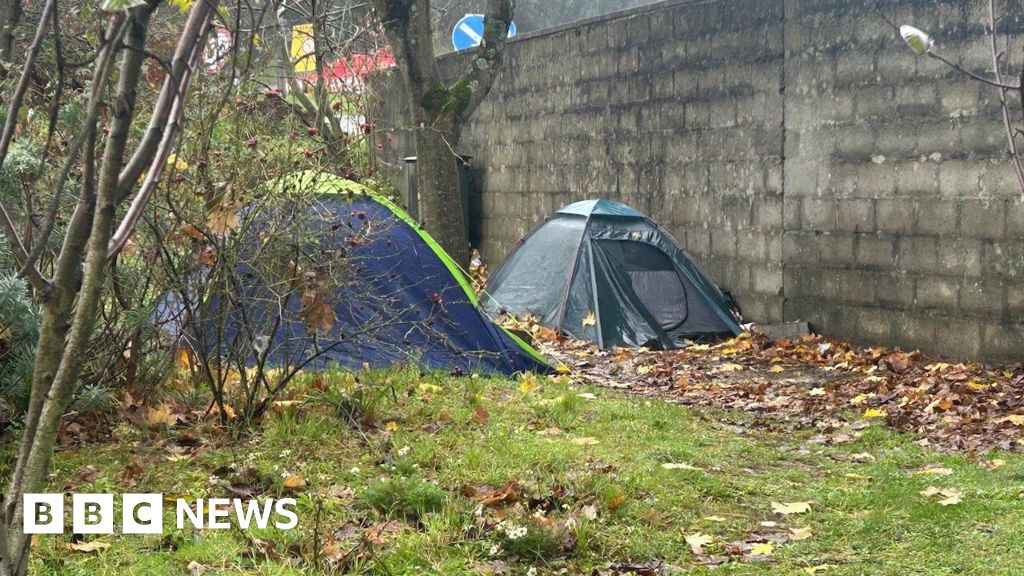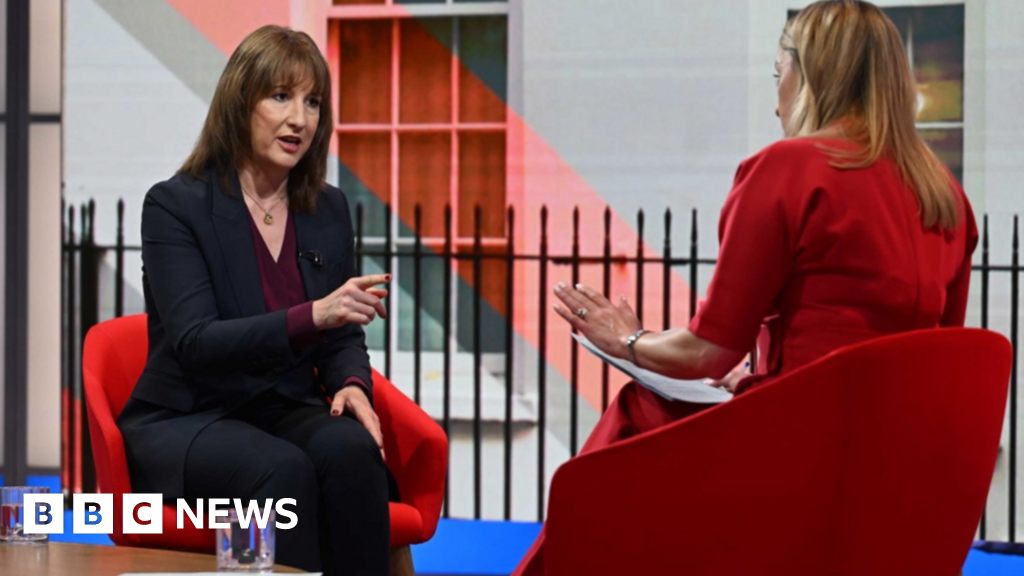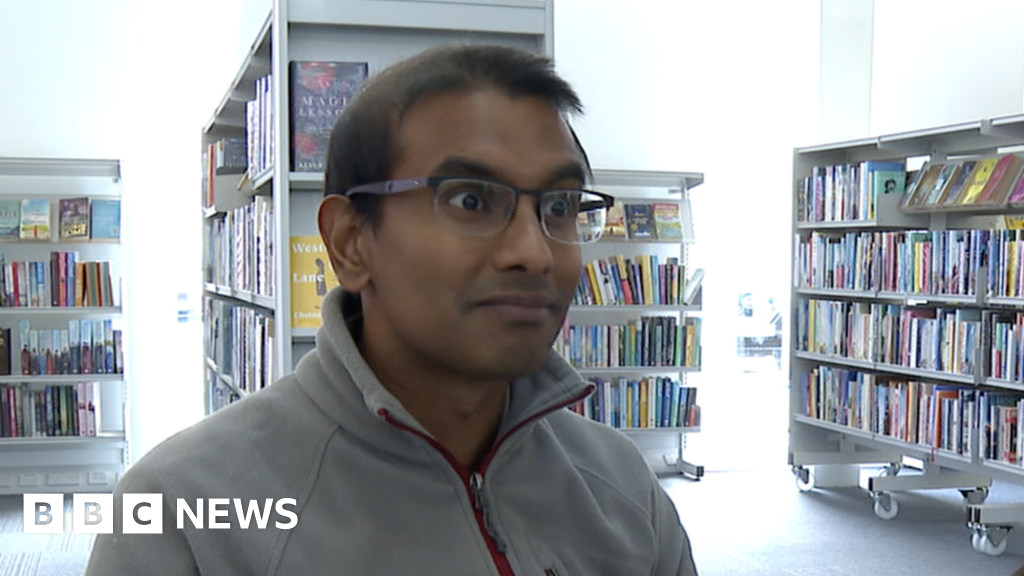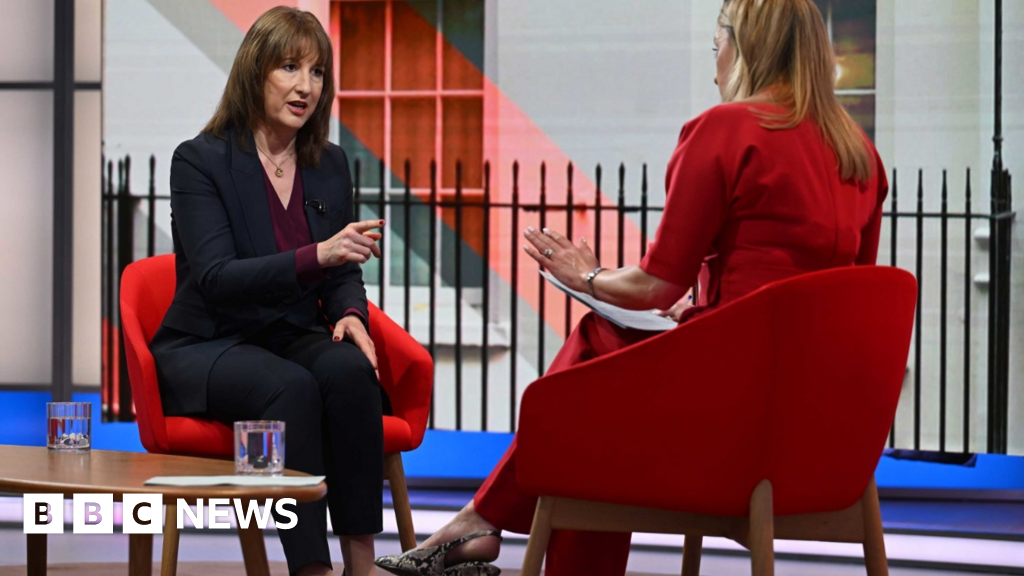Grace Eliza Goodwin and Kwasi Gyamfi AsieduWashington
Watch: "This is not good" - Airline travellers react to flight reductions
Air travel will be cut by up to 10% at 40 major airports, resulting in thousands of cancelled flights, in the coming days if the US government shutdown does not end, US Transportation Secretary Sean Duffy has warned.
The decision, which is expected to affect domestic flights only, was made because air traffic controllers had been reporting fatigue, the head of the Federal Aviation Administration (FAA) said.
Some 1.4 million federal workers, from air traffic controllers to park wardens, are working without pay - or are on forced leave - because the US Congress has not agreed to a funding budget.
Major airports in Atlanta, New York and Washington DC will be affected by the reduction in service.
Unions say many employees are becoming ill with stress or are being forced into taking second jobs.
On Wednesday, the federal government funding impasse became the longest shutdown in US history.
"It is unusual," said FAA chief Bryan Bedford of the planned flight reductions, "just as the shutdown is unusual, just as the fact that our controllers haven't been paid for a month is unusual."
The flight reductions will be gradual, starting at 4% of domestic flights on Friday, then rising to 5% on Saturday and 6% on Sunday, before hitting the full 10% next week, Reuters news agency reported.
Watch: "There will be frustration" - Transport secretary outlines reduction in air traffic
The names of the affected airports - all high-traffic locations - will officially be released on Thursday.
A list shared by a source with the BBC's US partner CBS includes some of the nation's busiest hubs.
They include Hartsfield-Jackson Atlanta International, New York John F Kennedy International, Chicago O'Hare International, Ronald Reagan Washington National, and Los Angeles International airports. The BBC has contacted the FAA and the transportation department for the official list.
The cancellations could affect between 3,500 and 4,000 flights per day. US media also reported that international flights would not be affected.
Low budget carrier Frontier Airlines warned customers to buy tickets at other airlines as a contingency plan.
The reduction in service is needed to ensure the US airspace remained safe for passengers, the FAA said.
In a statement, American Airlines, the second-largest carrier in North America, said it was waiting for more information from the FAA so it could determine which flights will be scrapped, but that "we expect the vast majority of our customers' travel will be unaffected".
Delta Air Lines told the BBC most of its flights would continue as scheduled, adding that all customers could change, cancel or refund their flights without penalty.
Once government funds ran out on 1 October, most federal workers were sent home and told they would be paid once the government reopened. Those deemed essential, like controllers, though, had to keep doing their jobs without pay.
Almost immediately after the shutdown started, airports began feeling the effects. Some had to ground flights for hours after air traffic controllers called out sick, while others relied on controllers from other airports.
Duffy warned earlier this week that flight cancellations could be coming, as half the country's 30 major airports experienced staff shortages.
Nick Daniels, the president of the labour union representing more than 20,000 aviation workers, put the situation into stark terms on Wednesday.
"Air traffic controllers are texting, 'I don't even have enough money to put gas in my car to come to work,'" he told CNN. "We base what we do day in and day out on predictability," he said. "Right now there is no predictability."
Writing recently for MSNBC, another controller, a single father, said he was working for food delivery service DoorDash after his daily air traffic shift ended, and was "sleeping only two hours most nights".
"Like many families, we didn't plan for a shutdown," he wrote. "Yet the bills don't stop."
Duffy previously said there was a risk that came with air traffic controllers taking on additional jobs during the shutdown, and had threatened to fire controllers who did not come to work.
Have you been affected by the issues raised in this story? Get in touch.

 Movie
Movie 3 weeks ago
64
3 weeks ago
64 





![Presidents Day Weekend Car Sales [2021 Edition] Presidents Day Weekend Car Sales [2021 Edition]](https://www.findthebestcarprice.com/wp-content/uploads/Presidents-Day-Weekend-car-sales.jpg)




 English (United States)
English (United States)